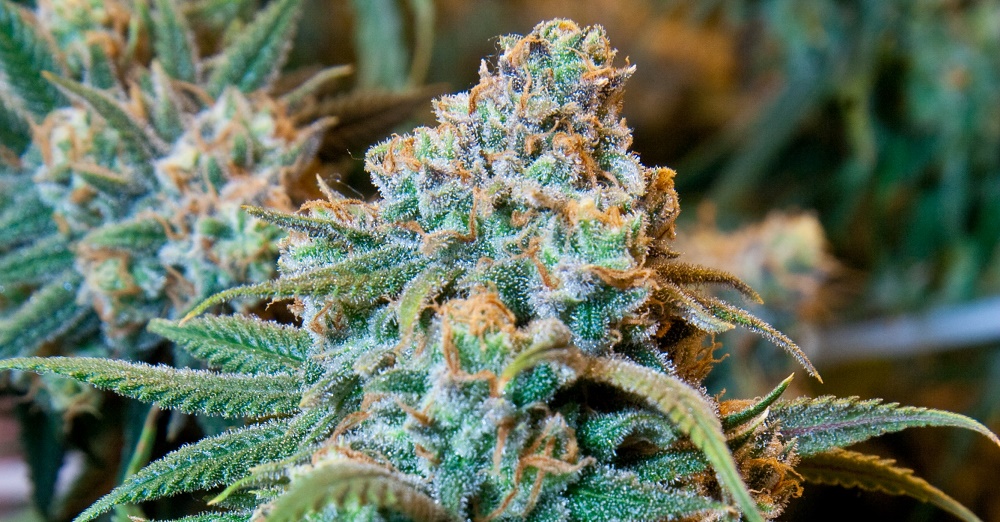New Study Shows Cannabis Does Not Lower IQ, But Drinking Alcohol Does
(TheAntiMedia) A new study revealed this week shows that in spite of past claims, marijuana use does not affect IQ. The research, performed by the University College of London, was presented on Tuesday at the European Conference of Neuropsychopharmacology in Berlin.
The longitudinal study was performed on over 2,000 students. Researchers studied subjects–once at age 8 and again at age 15–born between 1991 and 1992. As the Washington Post reported, the study found
“‘No relationship between cannabis use and lower IQ at age 15,’ when confounding factors – alcohol use, cigarette use, maternal education, and others – were taken into account. Even heavy marijuana use wasn’t associated with IQ.”
This runs in stark contrast to what an internationally publicized Duke University study found in 2012. That study claimed that using marijuana in adolescence led to irreversible drops in IQ–an average of 8 points. Though scientists almost immediately objected to the efficacy of the Duke study, the University College of London’s findings are the most recent to prove it wrong.
As the lead author, Claire Mokrysz noted,
“This is a potentially important public health message- the belief that cannabis is particularly harmful may detract focus from and awareness of other potentially harmful behaviors.”
In fact, the only substance the study found to lower IQ was alcohol, a government authorized drug.
While cannabis, a largely prohibited plant, improves a variety of medical ailments, alcohol is mostly detrimental and addictive. Even the state, which allows alcohol consumption, acknowledges alcohol’s health risks and admits that it instigates violence.
Likewise, pharmaceutical painkillers can be highly addictive, are increasingly abused by teenagers, kill more people than the drugs the state forbids, and remain perfectly legal. This is because they are approved by an agency in bed with pharmaceutical companies.
Similarly, toxic chemicals are considered legal and safe (as are poisonous foods and pesticidesapproved by the FDA and EPA) because corporations pay for special treatment.
Meanwhile, drugs deemed dangerous by the government continue to be outlawed and punished. Marijuana is not the only one. LSD, mushrooms and MDMA are increasingly recognized as beneficial yet they remain classified as Schedule 1 narcotics, described by the DEA as
“Drugs, substances, or chemicals…defined as drugs with no currently accepted medical use and a high potential for abuse. Schedule I drugs are the most dangerous drugs of all the drug schedules with potentially severe psychological or physical dependence.”
Painkillers do not make the list, nor does alcohol.
The London study did find that among the heaviest marijuana users, test scores averaged 3% lower, cautioning that there are still drawbacks to consumption. However, as Mokrysz noted,
“The current focus on the alleged harms of cannabis may be obscuring the fact that its use is often correlated with that of other even more freely available drugs and possibly lifestyle factors. These may be as or more important than cannabis itself.”
The study’s main findings add to the growing body of evidence that marijuana is far more medicinal than it is harmful. The new evidence adds to a long list of other past claims about the plant that have been disproved: that it causes cancer, that it is a gateway drug, and that it leads to crime and delinquency, to name a few.
Regardless of how harmful any drug — legal or illegal — may be, it is clear the government is not concerned with keeping people safe. Rather, its audacity in outlawing beneficial substances and promoting more dangerous ones shows not only its tendency toward corruption, but its belief that it can control what an individual non-violently does with his or her own body.
This notion is more dangerous than any drug the government condemns or endorses, but thanks to increasing studies like the University College of London’s, perceptions and policy continue to change.
This article is free and open source. You have permission to republish this article under a Creative Commons license with attribution to the author Carey Wedler and TheAntiMedia.org. Follow The Anti-Media on Facebook and Twitter to receive their latest articles. Image credit: Cannatraining














